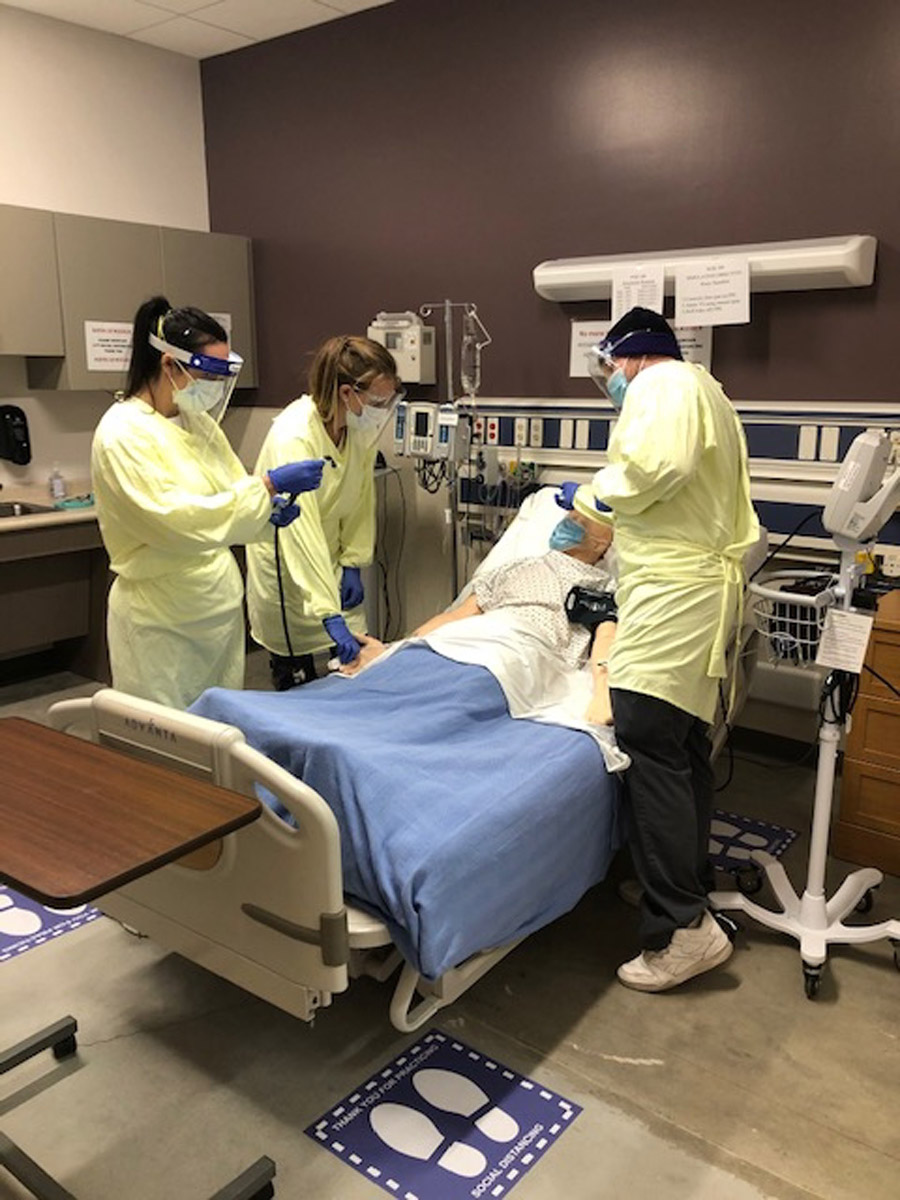Degree Type: Associate of Science Degree, AS
Pathway: Science, Engineering and Math
Thinking about becoming a doctor, physical therapist, veterinarian, dentist, or medical researcher? Wondering how to get into medical school? PPSC’s Medical Professional program is here to help you find answers and prepare for success. After earning your associate degree with us, you can transfer to a four-year institution to continue your education in medicine, dentistry, veterinary medicine, pharmacy, or chiropractic care. Our expert faculty and advisors will work with you to ensure your path aligns with your goals. Start your medical education journey with Pikes Peak today!

An Associate of Arts (AA) or Associate of Science (AS) degree covers the first two years of a four-year degree. After completing your AA or AS, you can transfer to a college or university to earn your Bachelor of Science or Arts degree. If you follow Colorado's 60 + 60 program, you could enter a public Colorado university as a junior. Be sure to meet early and often with your PPSC advising team to ensure you are on track toward your goals.
Depending on your target career, you will need to choose the appropriate entrance exam. Save money now for not only applications fees, but also for study tools and exam costs.
Getting into medical school is highly competitive, so applying to multiple schools can increase your chances. Some schools might be outside your preferred state or city, but remember, the goal is to become a doctor. Once you’ve completed your education, you can choose where to practice.
Tips to boost your competitive edge:
A medical residency is when you practice medicine under the supervision of a licensed doctor. The length of your residency depends on your chosen medical specialty. For example, becoming a neurosurgeon requires more residency experience than becoming a general practitioner.
This program is designed to meet the needs of students who wish to go into professional health care positions in dentistry, medicine, veterinary medicine, pharmacy, and chiropractic.
PPSC prepares its nursing students with the skills, technical competence, and know-how needed to find a rewarding career. With options for a Nurse Aid Certificate, Associate of Applied Science in Nursing Degree, and Bachelor of Science in Nursing Degree, you have many options to join the industry and enhance your career.
Explore NursingWhen you study Biology at PPSC, you will learn from faculty with diverse areas of study and life experiences. Our faculty are experts in microbiology, human anatomy, animal biology, and botany. If you pursue advanced degrees, you could go into fields like nursing, dentistry, pharmacy, veterinary medicine, and public health.
Explore Biology
Medical Professional Faculty Contact
Jennifer SwartzConnect with Admissions
We are here to help you get started and can answer your questions about going to college and becoming a student at Pikes Peak State College